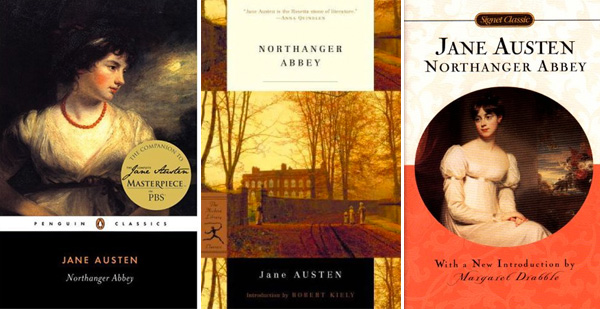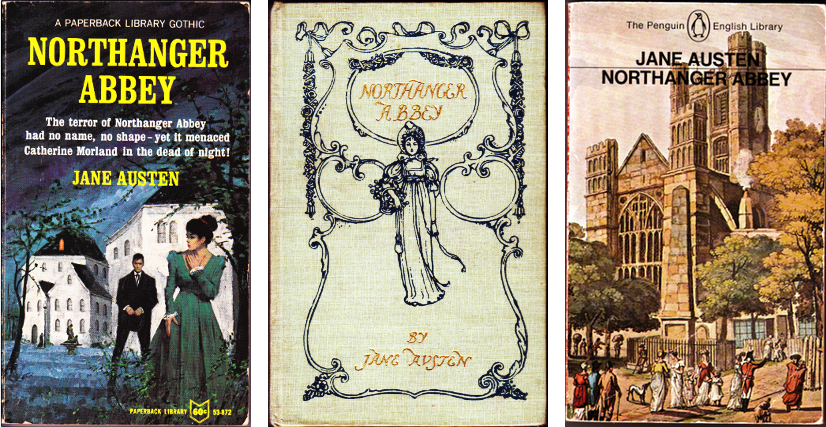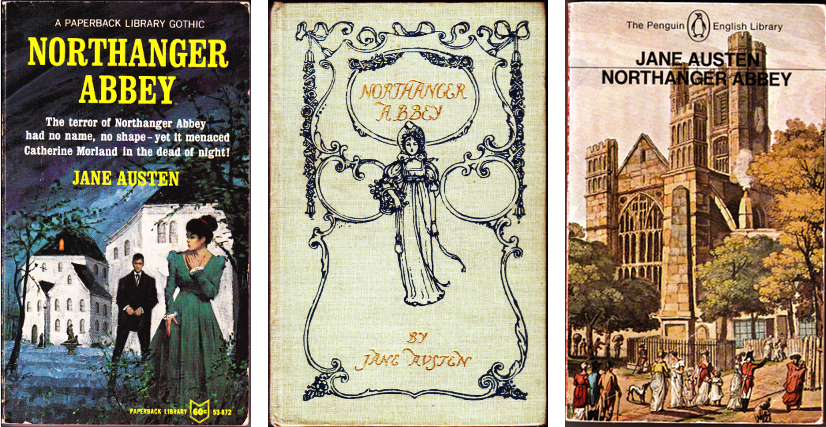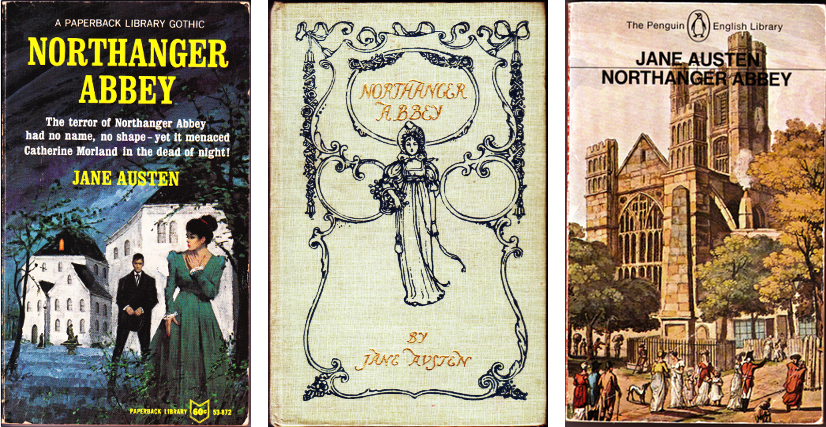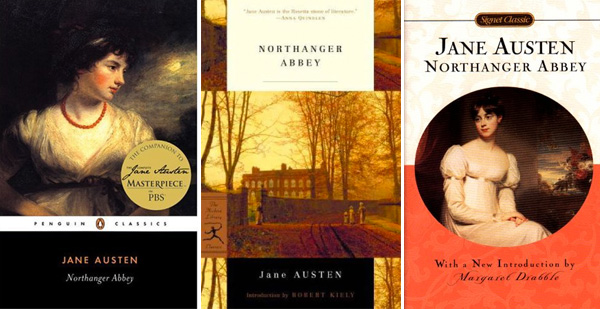In Training For a Heroine: The Great Northanger Abbey Re-read, Part II
Welcome back to part two of our Northanger Abbey recap. Last week we were introduced to Catherine, our daring heroine, and were given a taste of big city living in Bath. Will the smitten Mr. Tilney make a reappearance? Will there be a challenger for Catherine’s affections? All this and more, right now!
Chapter 6
In this chapter we get to know Isabella Thorpe a little better. Catherine’s new bestie is beautiful, sweet, and charming. She’s flattering and effusive, and has the kind of friendliness that makes you feel like the most important thing in the world, while you’ve got her attention. Both girls are again at the pump room, some sort of upper class daytime meeting place, when Isabella notices two young men making eyes at her. She promptly makes a huge fuss about how annoying it is, but then immediately wants to go walking in the same direction they’ve just taken. Catherine is, of course, totally oblivious, but for readers Isabella’s character is confirmed: Girl plays games.
Chapter 7
Once outside the pump room, Isabella and Catherine get stuck in traffic. (I know that the roads of the day were actually quite dangerous, what with the lack of laws and the skittish horses, but traffic must have still been such a quaint little thing by today’s standards. It’s funny to picture these two freaking out over a couple carriages.) Just then, who should arrive but James Morland, Catherine’s brother, and John Thorpe, Isabella’s brother. James and Catherine are all warm embraces and joy at being reunited, while Isabella and John care markedly less about seeing each other.
It’s here that we learn a little more about Isabella’s goals: James is clearly smitten with her, and she’s ramping up her flirtations accordingly. Catherine, sweet summer child that she is, has no idea. John Thorpe, for his part, is every loudmouth dude in a bar who thinks he’s the best thing to happen since sliced bread (or the regency equivalent). In a stereotype that still rings surprisingly true today, he talks incessantly about his new carriage (sleek! Fast! Other car-related adjectives!) and steamrolls Catherine’s opinions on novels, though it becomes obvious that he isn’t particularly well-read. Catherine, in a rare moment of insight, dislikes John and his manners, but is quickly and easily swayed by Isabella and James, the latter of which sings the praises of the Thorpes and is so happy that they’re all getting along. What a bunch of suckers.
Chapter 8
They have all agreed to meet up for dancing that evening, and though John Thorpe has requested Catherine’s first dance, he’s nowhere to be found. Buttface. Isabella, typically, makes a big show of not abandoning her friend, but flits off with James three minutes later (it’s great that Austen doesn’t say “a few minutes” or “shortly after,” no no, it’s three minutes. Exactly. She counted. You guys I love her she’s so sassy). Catherine, having the fortitude of all heroines before her, suffers the indignity of lacking a dance partner in silence.
BUT THEN, Mr. Tilney approaches! He’s meeting with an elegant woman, and Catherine gathers that she’s his sister. They eventually join Catherine’s party, and Tilney asks her to dance. She—unfortunately, mortifyingly—has to refuse him and dance with John Thorpe, who has just arrived. With barely an apology, he cuts her off from everyone else she knows, and the evening, with the exception of Catherine meeting Eleanor Tilney, is a bit of a bust. Mr. Tilney gets another partner and spends the rest of the night with her party, and Isabella is busy playing hard to get with James.
Chapter 9
The next day, Catherine wakes up refreshed and fully intending to further befriend Miss Tilney. Her plans, however, are dashed when John Thorpe (closely followed by Isabella and James) bursts in to take her on a carriage ride for the day. This is news to Catherine, and boy is she not pleased. She does, however, agree to go and, as it turns out, prolonged exposure to John isn’t good for anyone’s health. Two hours alone in a carriage with him begins to wear on our young protagonist.
John talks her ear off—mostly about horses and buggies, again—and generally behaves like many things Austen wouldn’t approve of me saying. He does, strangely, inquire as to whether Mr. Allen is indeed “rich as a Jew” and whether the Allens are childless. Will that aside prove important later on? We shall see. In any case, Catherine gets home exhausted and is further displeased to learn that both Henry and Eleanor Tilney were at the pump room that day. Learning, slowly, to trust her own mind, she allows that “the drive had by no means been very pleasant and that John Thorpe himself was quite disagreeable.” Amen.
Chapter 10
The Morlands, Allens, and Thorpes all meet at the theatre that night (a prime people watching locale, for those not in the know). Isabella lays it on think with Catherine, talking about how alike she and James are. (“We both like quiet country living!” Ha. Sure you do honey.) She’s a master manipulator, but even she can’t contend with Catherine complete naïveté. She keeps trying to goad Catherine into saying how well matched the pair are, but Catherine is not picking up what she’s putting down. “Isabella smiled incredulously, and talking the rest of the evening to James.” I love this book.
Catherine becomes better acquainted with Eleanor Tilney the next day and, hoping Henry Tilney will ask her to dance that evening, obsesses over what to wear. And dance they do! Unfortunately, everyone’s least favourite oaf, John, storms in saying he’d engaged Catherine to dance and now he looked foolish while she was off with someone else. Catherine replies that he asked her no such thing, and the audience replies “UGH THORPE GO DIE IN A FIRE.” When he leaves, Henry and Catherine discuss the similarities between dancing and marriage (real subtle, Tilney). Henry feels that since a dance and a marriage both represent a social contract wherein both parties have agreed to be solely with one another for its duration, that the vow made is of equal importance in both situations. Catherine, however, can’t get past the fact that a marriage is for life, and a dance is for a half hour. They just don’t carry the same weight for her. Tilney, darling, I know you’re trying to air your frustrations with Thorpe, but Catherine’s kind of got a point here. To his credit, he seems genuinely delighted by the fresh-faced enthusiasm of Catherine. (I’m pretty protective of her, can you tell?) They keep dancing, and Catherine notices she’s being watched by a man who turns out to be General Tilney, Henry and Eleanor’s father. She makes plans to go on a nature walk with the siblings, and the ball ends.
Commentary
From the outset it’s pretty clear that Isabella can play Catherine like a fiddle. There are the little anecdotes that imply great loyalty for her friends here, declarations of her ability to love and feel deeply there. It’s all very carefully constructed to gain Catherine’s trust, and our young protagonist falls for it hook, line, and sinker. The reader isn’t yet sure what Catherine’s endgame is, but it doesn’t take a whole lot of foresight to know she must have one. Of course, once James shows up, we have a bit of a better idea. He might not have much in the way of name and fortune, but homegirl’s clearly interested.
Austen’s really going whole hog on showing us exactly how far we should trust anyone by the name of Thorpe. The narration leaves us in no doubt that the siblings are bad news, and we know enough about Austen and her desire for sincerity to know that things probably won’t turn out all that well for them, particularly Isabella.
Censuring John’s language (“d—” instead of “damn), though probably necessary at the time, also has an added bonus of communicating to a modern audience just how objectionable his vocabulary would have been. It adds just that extra bit of emphasis, and it’s a really great character moment. Chapter nine particularly is all about pushing the reader firmly in the “oh my god John Thorpe you suck” camp, and the goal is accomplished marvelously. He swears, he yells, he implies that his Oxford studies involve a copious amount of drinking. Liking the high life in any form is often the death knell for an Austen character (just ask Lydia Bennett), and he’s clearly no exception.
What I find so interesting about Eleanor Tilney, is that she is in many ways set up as the anti-Isabella. She’s elegant where the other girl is stylish, confident instead of grasping, measured instead of exuberant. “She seemed capable of being young, attractive, and at a ball, without wanting to fix the attention of every man near her, and without exaggerated feelings of extatic delight or inconceivable vexation on every little trifling occurrence.” Again, substance is key in Austen’s world, and Eleanor’s presence further highlights what is so lacking in Isabella.
I also love that Catherine doesn’t for a moment feel jealousy for Eleanor, even when it wasn’t clear what the latter’s relationship to Henry was. It’s one of the most wonderful things about Catherine that she’s so lacking in Isabella’s brand of passive aggressive guile. How easily could a teenaged girl be written as envious and petty? But that’s not Catherine, she wants to believe the best in people, and she immediately assumes a filial bond, “thus unthinkingly throwing away a fair opportunity of considering [Henry] lost to her for ever.” She’s not one to create drama where none exists.
Austen makes sure to point out that not only is Catherine incapable of lying, she doesn’t even understand exaggerating for effect. Her family is made up of very matter of fact people, and this is the first time she’s encountered these Thorpe-style grand pronouncements. (“My dearest creature, you have been at least three hours getting ready. I was afraid you were ill,” cries drama queen Isabella after being made to wait a few minutes.) It’s no wonder that with an upbringing like that, both James and Catherine take everything at face value. They’re both intelligent, but they’ll need to learn some much-needed skepticism if they’re going to survive in the treacherous waters of high society.
Catherine’s not there yet, however, and continues her scorched-earth campaign of blistering, endearing ignorance by peppering Eleanor with questions about Henry. They part, “on Miss Tilney’s side with some knowledge of her new acquaintance’s feelings, and on Catherine’s, without the smallest consciousness of having explained them.” Cue sad head tilt “Oh Catherine.” You’ve really got to admire her utter inability to play it cool.
On that note, the conversation between her and Henry demonstrates a few keys points. One, that sincerity and commitment are of the utmost importance to Henry. (Austen seal of approval!) Two, that unlike in her conversations with John, Henry gives Catherine the space to voice her opinions, and respects them. They have a real debate, and we see that with Henry, Catherine shows her potential for confidence and wisdom most. And three, the kids are getting their flirt on and it’s so cute!
What happens in chapters eleven through fifteen? If you guessed more drama, congratulations! You win! But you’ll still have to wait until next week.
